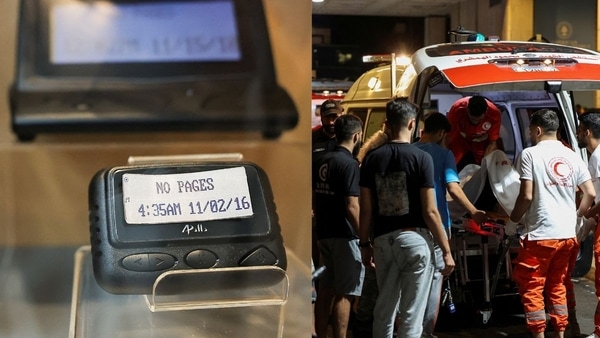
Lebanon Pager Explosions: How outdated tech became a deadly weapon in Beirut
6 months ago | 70 Views
In Lebanon, a series of pager explosions on Tuesday resulted in at least nine deaths and over 2,800 injuries. The blasts, which occurred in Beirut's southern suburbs and the eastern Bekaa valley, have left the country in disarray as authorities investigate the cause.
What are Pagers?
Pagers, also known as beepers, are small communication devices that receive messages through radio signals. Before mobile phones became common, pagers were essential for professionals such as doctors and journalists to receive urgent messages, even in remote areas.
How Pagers Operate
Pagers work by alerting users to incoming messages via radio waves, which trigger a distinct beep. Users then had to find a landline phone to respond. With technological advancements, newer pagers featured screens to display messages directly. However, as mobile phones became prevalent in the 1990s, the use of pagers declined significantly.
Lebanon Pager Blasts: Where and when were the explosions?
The explosions began at 3:30 p.m. local time (12:30 GMT) in Beirut's Dahiyeh area and the Bekaa valley, known for Hezbollah's presence. The detonations continued for about an hour, with some witnesses reporting ongoing explosions until 4:30 p.m. (17:30 GMT). As reported by Reuters, the security sources and footage indicated that the explosions occurred shortly after the pagers rang, leading some individuals to hold or check the devices.
The Lebanese health ministry reported eight fatalities and hundreds more injuries, with around 200 individuals in critical condition. The extent of the damage is still under evaluation, with some victims suffering severe limb injuries.
Explosive Mechanism of Pagers
Speculation surrounds how such outdated technology could cause such devastation. Reports suggest that Israel may have concealed explosives inside pagers purchased from Taiwanese manufacturer Gold Apollo, which were intended for Hezbollah. The devices reportedly contained a remote detonation switch. However, Gold Apollo's founder denied involvement, stating that the pagers were made by a European company licensed to use their brand.
Hezbollah had recently adopted pagers, believing they would evade Israeli tracking. According to sources, the devices used in the explosions were the latest model acquired by Hezbollah.
Read Also: Google Photos adds new image flipping feature: Heres how it works
HOW DID YOU LIKE THIS ARTICLE? CHOOSE YOUR EMOTICON !





















